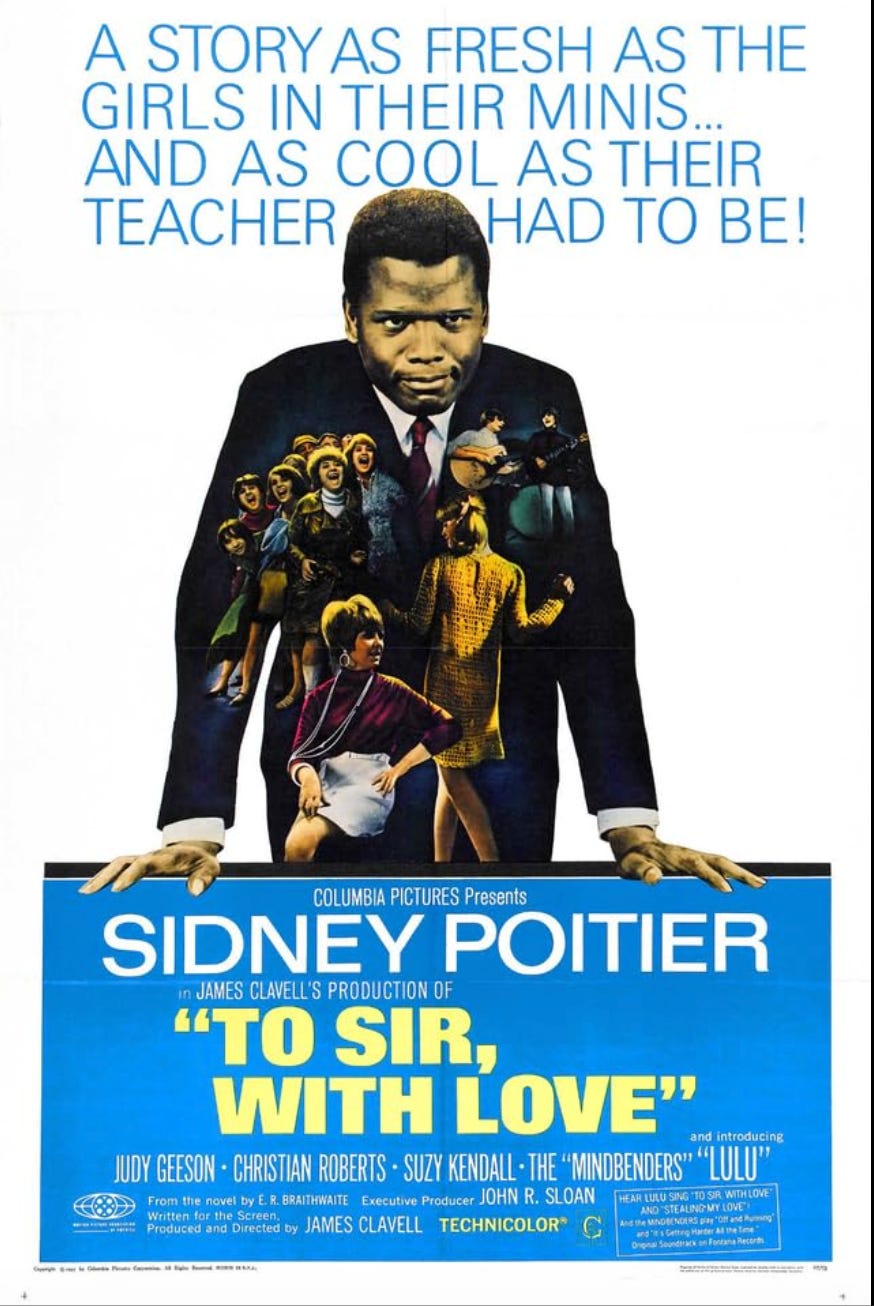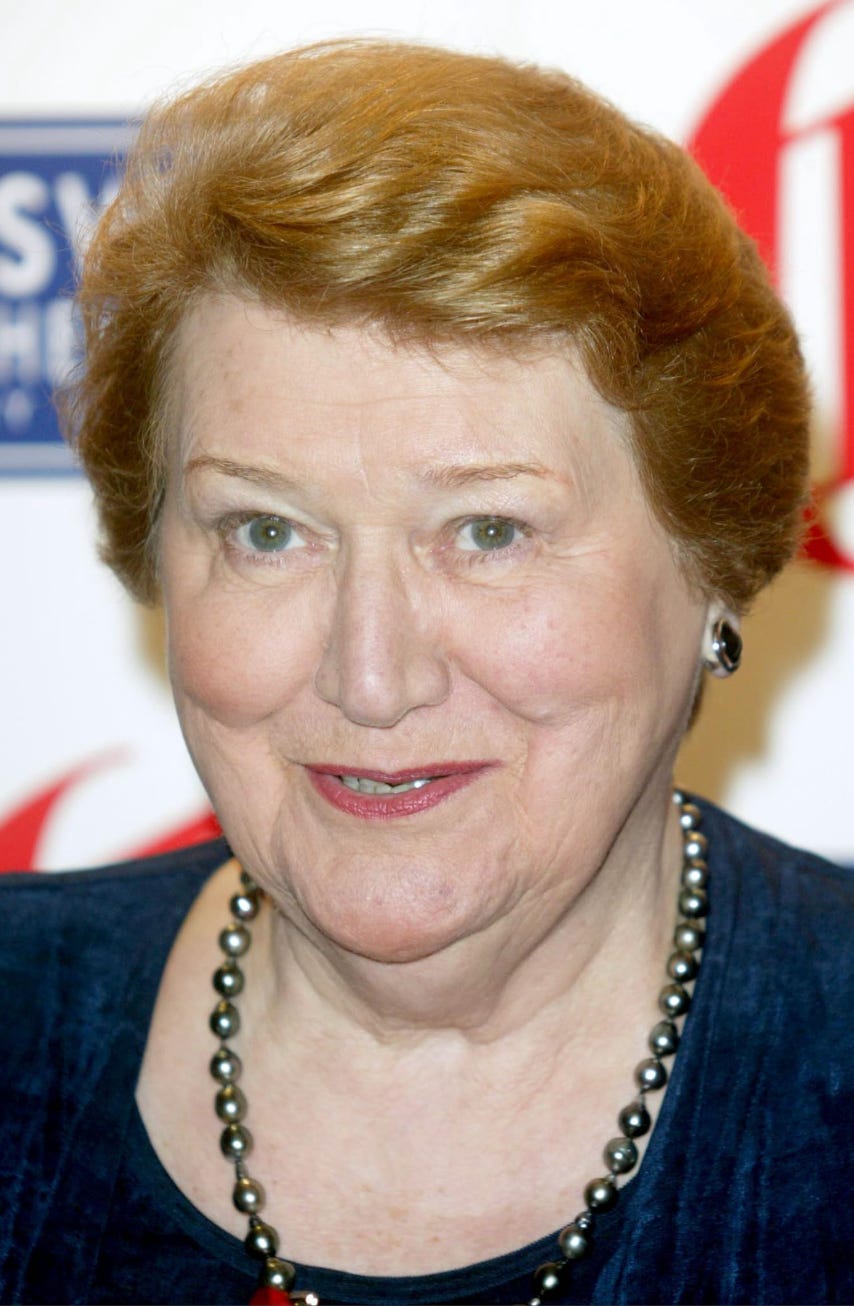A British film with the Hollywood clout of Sidney Poitier, before In The Heat Of The Night and Guess Who’s Coming To Dinner - all three made the same year.
A frustrated Engineer Mark Thackeray failing to land a proper job, Poitier bides his time as teacher at rough-house school in Wapping, wishing he was anywhere but there.
Credit: https://www.imdb.com/title/tt0062376/mediaviewer/rm1763388928/?ref_=tt_ov_i
A cast that included Judy Geeson, singer Lulu (18 at the time) and the redoubtable, versatile Patricia Routledge as a fellow-tutor. This, a chance to see her as you might not recognise her, in her youth. To Sir, With Love is a colour Black on White snapshot of the time, the music, the clothes and the underlying tensions of what it was to be Black here in Britain, as opposed to the Deep South.
It’s a tour de force from Poitier, there’s no doubting why he landed his next two roles, catapulting himself from an elevated place all the way into the stratosphere. As I’ve mentioned before, ‘film sees thought’ and Poitier is so good at being clear in thought, not to mention utterly commanding in poise and stature.
I imagine the role immediately appealed to him being so progressive, putting him in a situation that would have been groundbreaking for the time. For it’s impossible (for me at least) to take some films in without context, without some understanding of what was going on at the time.
With the US Civil Rights Movement (the Act newly minted only three years earlier, in 1964), there was a groundswell, a seismic shift in how people of colour were seen, how they wanted to be seen and Poitier, if nothing else, became the beacon that the ordinary Afro-American turned to: A trailblazer and bellwether, purely by existing.
What a year 1967 was for him. But it’s this part, this film that is the indicator, the litmus, the fuse. A modern role of nuance, of history, containing in microcosm the struggle of a man striving to maintain decorum, refusing to break, despite a multitude of cues - and not just as a person of colour, but as male, as teacher; as human.
Martin Luther King Jr was at the height of his powers and, as he stood in that moment in time, Poitier understood how crucial it was that he take on roles that demanded respect, that reconsidered, reconfigured what it meant to Represent, standing as the first African-American ever to win a Best Actor Oscar - for Lillies of the Field, in 1964. It would be less than a year later in 1968, that Martin Luther King is murdered in Memphis, Tennessee.
Based as it was on a true story, a novel written by E R Braithwaite of his experiences in the Fifties, the studio wanted more, a rape or fight, but Poitier and Writer-Director James Clavell stuck to their guns and thankfully prevailed. A surprise success when it came out, Lulu also topped the Billboard charts with her rendition of the movie soundtrack.
To his great credit, Clavell exacted vulnerability - not just from his star, but from everyone else in the cast wherever the role demanded it, never losing sight of the ensemble, the story, even under the undeniable wattage of his stellar lead.
It’s a lovely, perfectly-contained drama and a slice in time.
I also want to mark the passing of Patricia Routledge at 94 (1929-2025), plus a mate of mine in a tiny role as a School Boy; Stephen Whittaker (1947-2003), who went on to become a very accomplished TV director (Poirot, Inspector Morse, The Life & Adventures of Nicholas Nickleby) , dying far too young. A man immensely generous both with his time and huge expertise.
https://www.imdb.com/name/nm0746151/mediaviewer/rm2975705856/?ref_=nm_ov_ph
Anatomy of a Flop 046
The continuing festival run, and the struggle for money..
Keep reading with a 7-day free trial
Subscribe to Andrew Rajan’s Substack to keep reading this post and get 7 days of free access to the full post archives.




